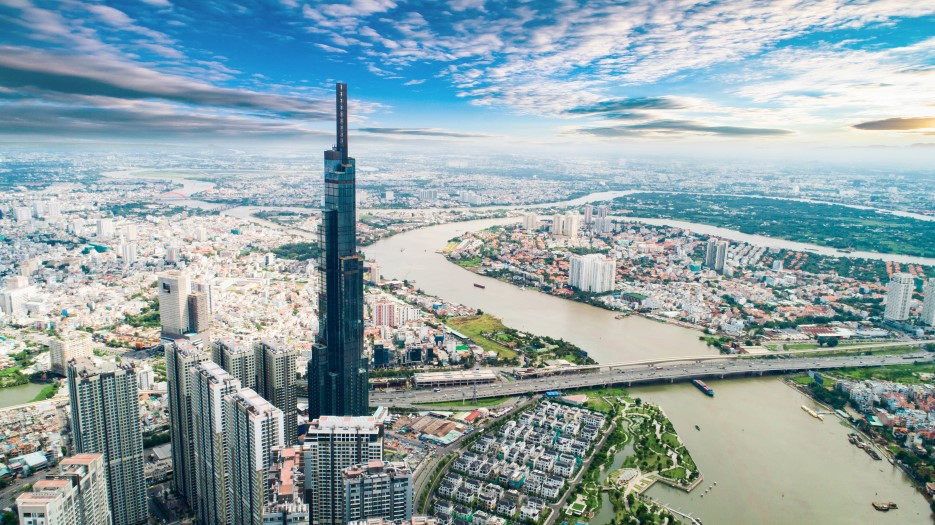Why Invest in Vietnam? 8 Compelling Reasons

As a fast-growing economy and Southeast Asia's third-largest market, Vietnam has set the stage for international investors to expand their businesses in the country. Vietnam's GDP clocked a growth rate of 6.72% in the 4th Quarter of 2023, bolstering its economic performance. This article summarizes the top 8 compelling reasons to invest in Vietnam guide you through the process of obtaining an entrepreneur visa in Vietnam.
1. Sustainable Investments
Vietnam realizes that the need to transition to green energy is inevitable and recently set its goal of carbon neutrality by 2050. Indeed the country now has the largest solar power capacity installed in Southeast Asia and was one of the top ten countries globally, with the most solar energy capacity developed in 2020.
The country plans to triple its installed wind and solar power-producing capacity to 31-38 gigawatts by 2030, necessitating investment. This has cleared the road for international companies to participate in Vietnam's hitherto unexplored Wind Energy sector.
2. Young & Inexpensive Workforce
With 100 million inhabitants, Vietnam is one of Asia's most populous countries. Despite the aging population, the country still keeps a young median age of 33.6 years in 2025. Furthermore, Vietnam's Minimum Wages held low at USD 165.3 per month in 2023, 1.7% decrease compared to 2022. The culmination of these factors has significantly contributed to the country's economic progress.
3. Government Incentives
The two main corporate income tax (CIT) incentives in Vietnam are preferential tax rates (lower tax rates) and tax holidays. Companies can also save money by taking advantage of customs tariff reward systems and land leasing exclusion provisions. In December 2021 the government passed further tax incentives to assist companies affected by COVID-19, known as resolution 406. Some of these incentives see CIT reduced by as much as 30% for the year 2022.
-
Preferential Tax Rates
Companies might choose to pay CIT at a lower rate than the standard 20%. There are three different levels of preferential treatment: 10%, 15%, and 17%. Depending on the specific terms, these rates may apply for the length of a project or a fixed period.
-
Tax Holidays
Companies can be excused from paying CIT for a specific period, generally for a period of four years. Once a tax vacation has ended, businesses can apply for a partial tax holiday, which requires them to pay only half of the taxes owed. The tax-free period normally begins in the first year of profit or the fourth year of earning money, whichever comes first. Businesses may be eligible for a tax holiday and lower tax rates in some conditions.
4. An Ideal Setting
Vietnam's central location in Southeast Asia makes it an attractive investment destination. It's also worth mentioning that it shares international shipping lanes and borders with China.
The main cities in Vietnam are equally well-positioned. In the north, we can find the capital city, Hanoi, whereas Ho Chi Minh City, the financial powerhouse of the country, is located in the south. This facilitates doing business both inside and outside the country. In addition to these two cities, Da Nang, the third-largest city, located in the central part of the country offers other lucrative commercial options as well as a business-friendly local government.
Read More
5. Lucrative Trade Agreements
Vietnam has several trade agreements in place, which makes doing business in the nation more seamless than ever before. These trade agreements facilitate foreign investors to set up businesses and take advantage of cheaper tariffs. Some notable trade agreements are as follows:
- EU-Vietnam Trade Agreement: The EU-Vietnam trade agreement is the EU's most extensive one with a developing country. The agreement is projected to reduce tariffs on 95% of all goods traded between the two nations.
- ASEAN Free Trade Area: The ASEAN Free Trade Area (AFTA) is a trade bloc pact that encourages local trade and industry in all ASEAN countries while allowing economic integration with regional and international partners. AFTA's main goals are to boost ASEAN's competitiveness as a global manufacturing base by reducing tariffs and non-tariff barriers within the region and attracting more foreign direct investment.
- UK-Vietnam Free Trade Agreement: As per the UK government's publishing services, 65% of all tariffs have been eliminated since the EU-Vietnam Free Trade Agreement went into effect. Tariff reductions will reach 99% after 6 to 9 years. Tariffs will be reduced following a plan that calls for yearly reductions in the same amount. Customers and businesses will benefit from lower prices on garments, fabric, and footwear as a consequence.
These are some other relevant trade agreements and affiliations:
- Member of ASEAN
- Bilateral Trade Agreement (BTA) with the US
- Trans-Pacific Partnership (TPP)
- Free Trade Agreement (FTA) with Japan
- FTA with Korea
6. Political & Economic Stability
The Communist Party of Vietnam (CPV) governs Vietnam, a politically stable country. Economic growth, national sovereignty, and social order are the government's primary objectives. The government aspires the nation to be middle-income by 2025, upper-income by 2030, and developed, high-income by 2045. Maintaining a stable progress on the economic front and long-term prosperity are required to achieve this.
Furthermore, Vietnam's economy has changed dramatically, lifting millions of people out of poverty. Despite the COVID-19 epidemic, it has one of the fastest-growing economies globally, with GDP amounting to USD 271.16 billion in 2020 (the country's economy grew by 7% in 2019). Moreover, Trading Economics global macro models and analysts' expectations predict that Vietnam's GDP will trend around 310 USD Billion in 2022 and 340 USD Billion in 2023.
7. Supply Chain Shift From China
As the US maintains tariffs on Chinese goods, it appears that Vietnam will benefit the most from enterprises looking to diversify their supply chain away from Asia's largest industrial powerhouse, China, and pivoting to mushrooming economies such as Vietnam for a plethora of untapped opportunities.
8. A Stable & Industrialized Future
By 2030, Vietnam is expected to be transformed into a modernity-oriented industrialized country among the top three in ASEAN. Some of its industries are globally competitive and deeply involved in the global value chain.
Finally, Vietnam’s General Secretary Nguyen Phu Trong signed a resolution (No. 23-NQ/TW) regarding the national industrial development policy focusing to achieve ultimate modernization and industrialization by 2045.
Thinking about setting up an office in Vietnam?
Getting your business ready in a foreign country can be overwhelming, but having a trusted market entry partner to assist you can make all the difference. With years of expertise in providing market entry services to clients entering the Vietnam market, Cekindo provides a full range of tailored corporate solutions to support companies looking for expansion opportunities.
Searching for an office in Vietnam will probably be your next step. Flexible office space providers like Compass Offices can help you get your business off the ground quickly. Located in Ho Chi Minh City, the commercial hub of modern Vietnam, Compass Offices operates at Bitexco Financial Tower in District 1 and Vincom Landmark 81 in Binh Thanh. Setting up your serviced offices or virtual offices at these two iconic buildings will give you an edge in establishing a strong local presence.





